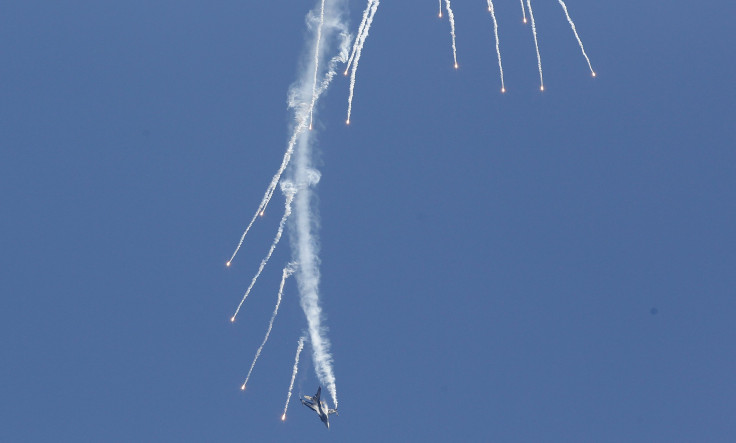Turkey Shoots Down Drone: Russia Claims All UAVs Accounted For

Russia claimed Friday that the unidentified drone shot down by the Turkish military on the northern border with Syria was not from its fleet, according to Russian state news website Sputnik. A senior Russian commander made the statement denying that the drone belonged to the Russian Air Force just hours after Ankara said the unidentified aerial vehicle a was shot down in its sovereign airspace.
"All the aircraft of the Russian combat group in the Syrian Arab Republic returned to the Hmeymim base after completing their mission," Russian Defense Ministry spokesman General-Major Igor Konashenkov said during a briefing to reporters, according to the Sputnik report.
It's not yet clear what country the drone is from, but given previous violations of Turkish airspace by Russian jets and the fact that other countries operating in the region are allied with Turkey, it is likely that Moscow will face continued suspicion.
Turkey had been warning in recent weeks that it would retaliate aggressively if any aircraft entered its airspace without permission. Russian jets had previously strayed into Turkish airspace while conducting bombing raids against Islamic State group and Syrian rebel targets operating in northern Syria.
Turkey claimed that the drone was given ample warning before it was brought down. "An unidentified unmanned aerial vehicle was spotted in our airspace today,” said Turkey’s General Staff, according to the Hurriyet Daily news. “Despite three issued warnings, the vehicle continued flying. Our planes patrolling the border opened fire and downed it."
Russia has been involved in Syria since early September when its ships and aircraft began unloading military aid in support of Bashar Assad's authoritarian regime. While Moscow maintained that its operation was purely in support of Assad's Damascus government, it then authorized bombing raids against Syrian rebels and ISIS. On any given day since the airstrikes began more than two weeks ago, Russian jets have been involved in up to 80 raids.
The result of the heavy Russian bombardment is that Syria's airspace had become saturated, resulting in U.S. aircrafts also targeting ISIS coming in close contact with Russian counterparts.
© Copyright IBTimes 2025. All rights reserved.






















